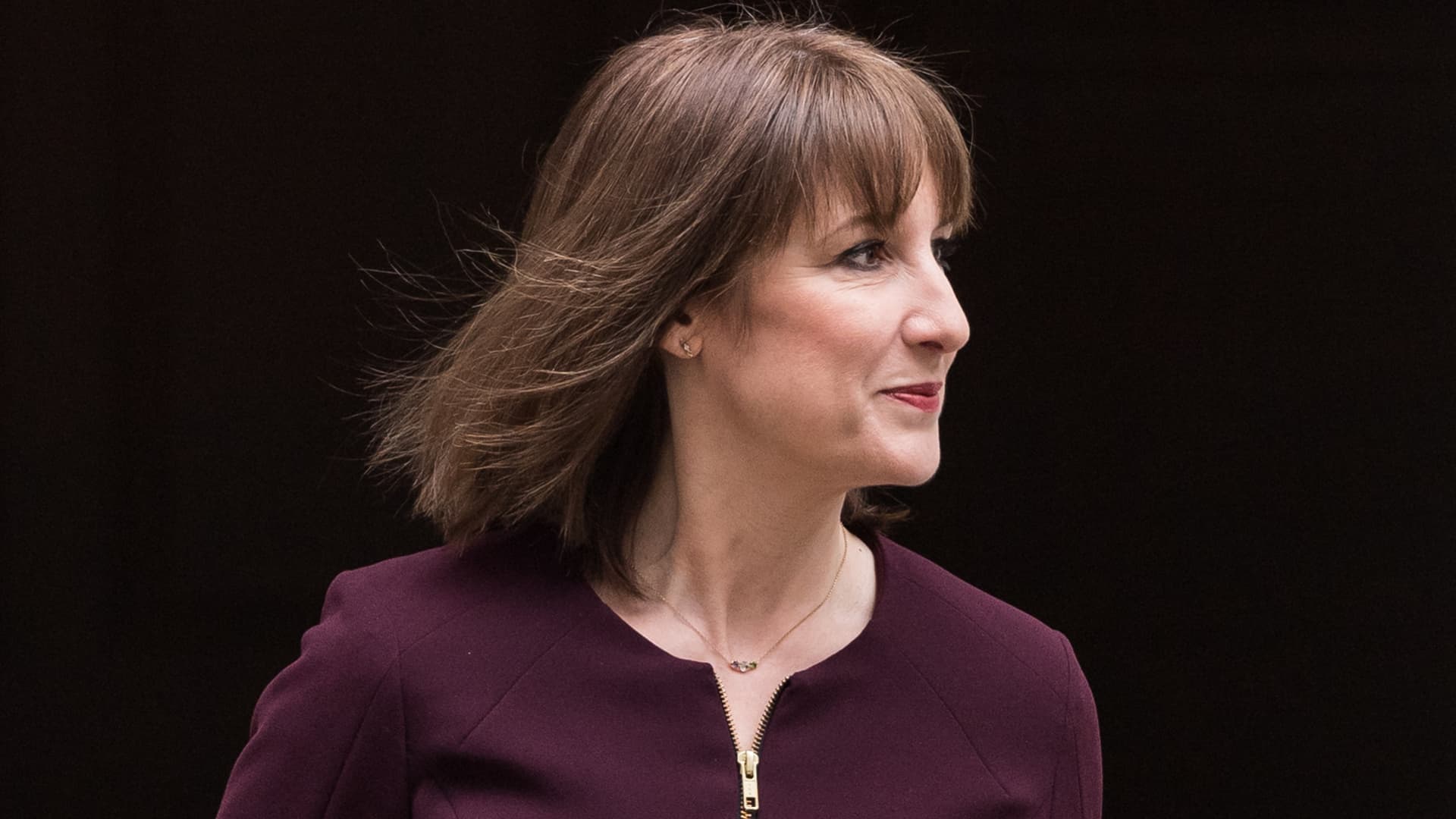LONDON, UNITED KINGDOM – MARCH 26, 2025: Britain’s Chancellor of the Exchequer Rachel Reeves leaves 11 Downing Street ahead of the announcement of the Spring Statement in the House of Commons in London, United Kingdom on March 26, 2025. (Photo credit should read Wiktor Szymanowicz/Future Publishing via Getty Images)
Wiktor Szymanowicz | Future Publishing | Getty Images
U.K. government borrowing costs fell on Wednesday after the country’s Office for Budget Responsibility unexpectedly released its economic and fiscal forecasts ahead of the Autumn Budget.
Yields on the benchmark 10-year gilt were last seen 3 basis points higher at 4.52%. When the report was initially released yields fell as much 4 basis points, before reversing course to gain as many as 4 basis points.

U.K. 10-year gilt
The OBR was scheduled to publish its forecasts following the budget, which Finance Minister Rachel Reeves will deliver in parliament at 12:30 p.m. London time (7:30 a.m. ET).
In its report, the fiscal watchdog gave details of tax-raising measures that will be announced in the budget, including freezes on income tax thresholds, taxes on private pension contributions that exceed £2,000 a year, new mileage-based taxes on electric vehicles, and an annual tax on homes valued above £2 million ($2.6 million).
The web page on which the forecasts were published is no longer accessible. A spokesperson for the OBR was not immediately available for comment.
Why do bond yields matter?
In the run-up to the budget, investors told CNBC bond markets wanted to see Reeves cut public spending and hike taxes, moves that will be unpopular among the electorate.
Bond yields and prices move in opposite directions, so when investors are reluctant to lend to a government, the price of the bond falls and the yield rises.
The U.K. government currently has the highest borrowing costs of any G7 nation, with its 30-year gilt yield trading well above the critical 5% threshold and spending much of this year at multi-decade highs.
Dramatic rises in gilt yields — essentially the amount of interest the government pays on its debt — could also have a wider impact on the overall economy.
While bond yields reflect borrowing costs for the governments who issue them, they can also affect mortgage rates, investment returns, the wider economy and personal borrowing.
Back in 2022, Prime Minister Liz Truss’s swathe of unfunded tax cuts triggered a bond sell-off that had long-lasting effects on the economy and led to her resignation just 44 days into the job.
This is a breaking news story. Please refresh for updates.





